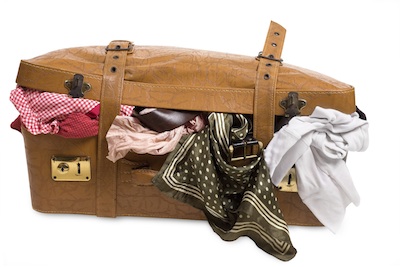 Some communications pack a lot of information into a very few words. A skit on the CBC comedy program The Irrelevant Show last weekend is the best example I have heard in a long time.
Some communications pack a lot of information into a very few words. A skit on the CBC comedy program The Irrelevant Show last weekend is the best example I have heard in a long time.
A sketch started with a narrator explaining that in about the year 2050 (or maybe it was 2030—I’m not sure), humanity figured out time travel. Shortly after that, the people in charge of the time machines had to send an investigator to find out why so many people went back to 1972 but refused to return.
This is part of the conversation between the investigator and the escaper to 1972. Keep in mind that’s it’s reconstructed from memory, so it may not be precise, but it captures the idea:
Escaper to 1972: I finished my university degree. It cost me $1000.
Investigator: For books?Escaper to 1972: For the YEAR! And most of it was covered by grants. When I graduated, I applied to a Want Ad in the newspaper, and I got the job.
Investigator: A contract, right?
Escaper to 1972: Permanent, full time, with benefits. I have a bottle of scotch in my desk at work. My boss gave it to me! Last week, I got on an airline flight with a full bottle of shampoo in my carry-on!
 Later, I shared that with my good friend, who said “Yes, it was great to be a white man in 1972.”
Later, I shared that with my good friend, who said “Yes, it was great to be a white man in 1972.”
Good point. 1972 was not as rosy for women, black people, Asians, Indigenous people, gay people—everyone we so casually lump together as “minorities.” But at the same time, have we lost something valuable that we used to take for granted?
I can accept the idea that large bottles of shampoo somehow pose a threat to airliners, and I’m not greatly inconvenienced by the restrictions against them.
The changes we have accepted in education and employment in Canada and even more so in the U.S. are much greater, have much more profound effects on everyone, and yet elicit far less complaint.
When I began university, I think tuition was just under $800 a year. Not per course, for the year. I grumbled when I spent under $200 for all my books for the semester. And while I made around six bucks an hour in my summer job, it was enough to pay for tuition, books and residence. There wasn’t much left over, but I got used to living, and spending, like a student.
Today, I have two kids in university. They’re both over 20 and still live with their parents, my wife and me. That’s typical today, whereas when I was their age, nearly all my friends lived apart from their parents. The few that still “lived at home” were the exceptions.
I don’t need to repeat the many reports already published about the economic straights of today’s university students
- – about the fact that students’ wages cannot possibly pay for the cost of tuition, let alone living expenses
- – about the crushing debt that students graduate with, but that starting salaries that don’t pay enough to cover the interest
- – about the fact that most of the “entry level” jobs are non-paying internships, followed by years of short-term contracts, and the fact that most young people work without benefits or pensions.
Why have we allowed ourselves to give up those things we once had? Jobs that paid living wages and the opportunity for an education and to give your children an education? 
Things were not great for everyone
As my friend said, “It was great to be a white man in 1972.” I am very happy that our society has made the strides it has in sexual and racial equality, in human rights, in health care and scientific knowledge.
But is the cost of equal rights (which have not yet been fully realized, by the way) the elimination of the middle class, and turning an entire generation into debt slaves?
What do you think?
